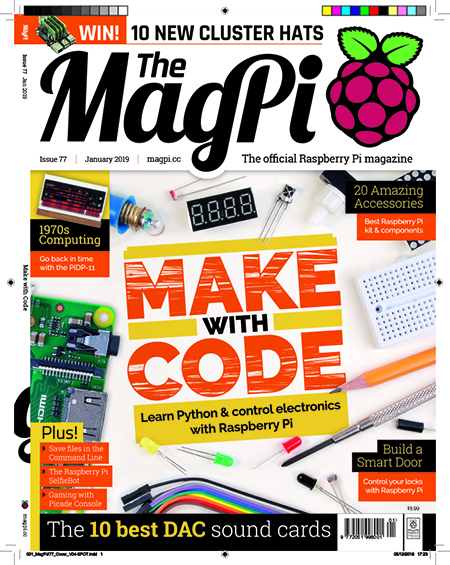 Nobody can deny that the technical revolution has seriously disrupted journalism. The way news is gathered, published and consumed has changed dramatically in just a decade or so. Yet what if I told you that tech companies aren’t always the bad guys? Recent news shows some tech companies are now investing in print titles, bolstering the idea that magazines remain an important part of the journalism ecosystem.
Nobody can deny that the technical revolution has seriously disrupted journalism. The way news is gathered, published and consumed has changed dramatically in just a decade or so. Yet what if I told you that tech companies aren’t always the bad guys? Recent news shows some tech companies are now investing in print titles, bolstering the idea that magazines remain an important part of the journalism ecosystem.
“The business wing of the Raspberry Pi Foundation today announced the acquisition of two print tech magazines formerly belonging to the UK’s Dennis Publishing, namely Custom PC and Digital SLR Photography,” writes Matthew Hughes in The Next Web.
Hughes argues that the move bodes well for tech journalism.
“This move arguably saved these publications from the chopping block. Over the past decade, technology journalism’s struggling print wing has been trapped in a terminal death spiral, with the loss of several iconic titles, including PC Zone, MacUser and Computer and Video Games,” he notes.
And these aren’t fire sale titles either; as Hughes explains, the titles made around $5.5 million USD for their publishing company, Dennis Publishing, over the past 10 years. They were sold because, according to managing director John Grewal, they weren’t part of the company’s “new strategic focus.”
Meanwhile, new owners Raspberry Pi have been gaining credibility in the tech publishing sector, with their development of MagPi, Wireframe and Hackspace Magazine. This represents a shift in mindset for tech journalism.
“Tech journalists cover companies; they seldom work for them. That’s arguably because there’s a lot of bad blood between the Fourth Estate and the tech industry,” Hughes writes. “Part of the problem is that publications compete with Google and Facebook for the same shrinking pool of advertising money, and right now, they’re losing — badly.”
Still, beyond this challenge and the body blow dealt to publishers by Facebook over the past few years, the tech industry is showing solid signs that it values and respects print media – the very thing it served to disrupt so spectacularly.
“In the case of Custom PC and Digital SLR Photography magazines, the acquisition by the Raspberry Pi project could bring about a new infusion of money, creativity, and crucially, could expose them to a new generation of coders and creatives that possibly have never bought a magazine before,” Hughes concludes.
It’s fascinating to see this happening, and print publishers should be embracing this kind of move by tech industry firms.
